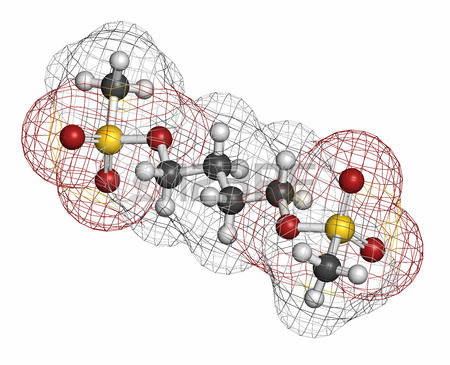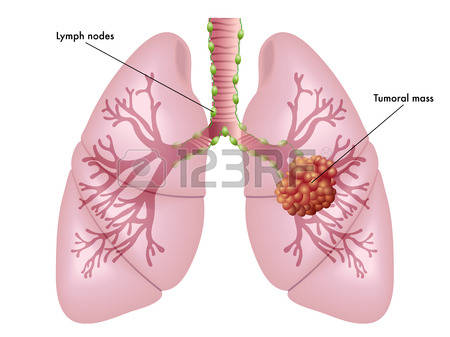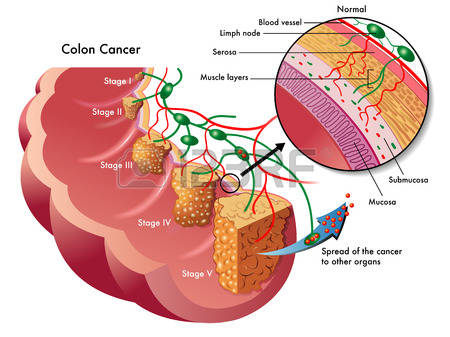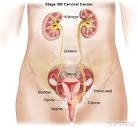





Mouth & Neck Radiation Discharge
When you have radiation treatment for cancer, your body goes through changes.
Two weeks after radiation treatment starts, you might notice changes in your skin. Most of these symptoms go away after your treatments have stopped.
⦁ Your skin and mouth may turn red.
⦁ Your skin might start to peel or get dark.
⦁ Your skin may itch.
⦁ The skin under your chin may get droopy.
You may also notice changes in your mouth. You may have:
⦁ Dry mouth
⦁ Mouth pain
⦁ Nausea
⦁ Difficulty swallowing
⦁ Lost sense of taste
⦁ No appetite
⦁ Stiff jaw
⦁ Trouble opening your mouth very wide
⦁ Dentures may no longer fit well, and may cause sores in your mouth
Your body hair will fall out 2 to 3 weeks after radiation treatment starts, but only in the area being treated. When your hair grows back, it may be different than before.
irridation formula
Taking Care of Your Skin
When you have radiation treatment, color markings are drawn on your skin. DO NOT remove them. These show where to aim the radiation. If they come off, do not redraw them. Tell your health care provider instead.
To care for the treatment area:
⦁ Wash gently with lukewarm water only. DO NOT scrub your skin.
⦁ DO NOT use soaps.
⦁ Pat dry instead of rubbing dry.
⦁ DO NOT use lotions, ointments, makeup, perfumed powders, or other perfumed products on this area. Ask your provider what is OK to use.
⦁ Use only an electric razor to shave.
⦁ DO NOT scratch or rub your skin.
⦁ DO NOT put heating pads or ice bags on the treatment area.
⦁ Wear loose-fitting clothing around your neck.
Tell your provider if you have any breaks or openings in your skin.
Keep the area that is being treated out of direct sunlight. Wear clothing that protects you from the sun, such as a hat with a broad brim and a shirt with long sleeves. Use sunscreen.
Taking Care of Your Mouth
Take good care of your mouth during cancer treatment. Not doing so can lead to an increase in bacteria in your mouth. The bacteria can cause infection in your mouth, which can spread to other parts of your body.
⦁ Brush your teeth and gums 2 or 3 times a day for 2 to 3 minutes each time.
⦁ Use a toothbrush with soft bristles.
⦁ Let your toothbrush air dry between brushings.
⦁ If toothpaste makes your mouth sore, brush with a solution of 1 teaspoon of salt mixed with 4 cups of water. Pour a small amount into a clean cup to dip your toothbrush into each time you brush.
⦁ Floss gently once a day.
Rinse your mouth 5 or 6 times a day for 1 to 2 minutes each time. Use one of the following solutions when you rinse:
⦁ 1 teaspoon of salt in 4 cups of water
⦁ 1 teaspoon of baking soda in 8 ounces of water
⦁ One half teaspoon of salt and 2 tablespoons of baking soda in 4 cups of water
DO NOT use rinses that have alcohol in them. You may use an antibacterial rinse 2 to 4 times a day for gum disease.
To further take care of your mouth:
⦁ DO NOT eat foods or drink beverages that have a lot of sugar in them. They may cause tooth decay.
⦁ DO NOT drink alcoholic beverages.
⦁ DO NOT eat spicy foods, acidic foods, or foods that are very hot or cold. These will bother your mouth and throat.
⦁ Use lip care products to keep your lips from drying out and cracking.
⦁ Sip water to ease mouth dryness.
⦁ Eat sugar-free candy or chew sugar-free gum to keep your mouth moist.
If you use dentures, wear them as infrequently as possible. Stop wearing your dentures if you get sores on your gums.
Ask your doctor or dentist about medicine to help with mouth dryness or pain.
Other Self-care
You need to eat enough protein and calories to keep your weight up. Ask your provider about liquid food supplements that can help.
Tips to make eating easier:
⦁ Choose foods that you like.
⦁ Try foods with gravy, broths, or sauces. They will be easier to chew and swallow.
⦁ Eat small meals, and eat more often during the day.
⦁ Cut your food into small pieces.
⦁ Ask your doctor or dentist if artificial saliva might be helpful for you.
Drink at least 8 to 12 cups of liquid each day, not including coffee, tea, or other drinks that have caffeine in them.
If pills are hard to swallow, try crushing them and mixing them with ice cream or another soft food. Ask your doctor or pharmacist before crushing your medicines. Some medicines do not work when crushed.
⦁ DO NOT try to do too much in a day. You probably will not be able to do everything you are used to doing.
⦁ Try to get more sleep at night. Rest during the day when you can.
⦁ Take a few weeks off work, or work less.
Follow-up Care
Your doctor may check your blood counts regularly, especially if the radiation treatment area on your body is large.
See your dentist as often as recommended.
Alternative Names
Radiation - mouth and neck - discharge; Head and neck cancer - radiation; Squamous cell cancer - mouth and neck radiation; Mouth and neck radiation - dry mouth
References:
Doroshow JH. Approach to the patient with cancer. In: Goldman L, Schafer AI, eds. Goldman's Cecil Medicine. 25th ed. Philadelphia, PA: Elsevier Saunders; 2016:chap 179.
National Cancer Institute. Radiation therapy and you: support for people with cancer. Updated May 2007. www.cancer.gov/publications/patient-education/radiationttherapy.pdf. Accessed March 20, 2016.
 v
v




When you have radiation treatment for cancer, your body goes through changes.
About 2 weeks after your first treatment:
⦁ It may be hard to swallow, or swallowing may hurt.
⦁ Your throat may feel dry or scratchy.
⦁ You may develop a cough.
⦁ Your skin over the treated area may turn red, start to peel, get dark, or it may itch.
⦁ Your body hair will fall out, but only in the area being treated. When your hair grows back, it may be different than before.
⦁ You may develop a fever, more mucus when you cough, or feel more out of breath.
For weeks to months after radiation treatment, you may notice shortness of breath. You are more likely to notice this when you are active. Contact your doctor if you develop this symptom.
Skin Care
When you have radiation treatment, color markings are drawn on your skin. DO NOT remove them. These show where to aim the radiation. If they come off, do not redraw them. Tell your doctor instead.
To take care of the treatment area:
⦁ Wash gently with lukewarm water only. DO NOT scrub.
⦁ DO NOT use soaps.
⦁ Pat your skin dry.
⦁ DO NOT use lotions, ointments, makeup, perfumed powders, or any other perfumed products on this area. Ask your health care provider what it is OK to use.
⦁ Keep the area that is being treated out of direct sunlight.
⦁ DO NOT scratch or rub your skin.
⦁ DO NOT put heating pads or ice bags on the treatment area.
⦁ Wear loose-fitting clothing.
Tell your provider if you have any breaks or openings in your skin.
Other Self-care
You will likely feel tired after a few days. If so:
⦁ DO NOT try to do too much in a day. You probably will not be able to do everything you are used to doing.
⦁ Try to get more sleep at night. Rest during the day when you can.
⦁ Take a few weeks off work, or work less.
You need to eat enough protein and calories to keep your weight up.
To make eating easier:
⦁ Choose foods that you like.
⦁ Try foods with gravy, broths, or sauces. They will be easier to chew and swallow.
⦁ Eat small meals and eat more often during the day.
⦁ Cut your food into small pieces.
⦁ Ask your doctor or dentist if artificial saliva might help you.
Drink at least 8 to 12 cups of liquid each day, not including coffee or tea, or other drinks that have caffeine in them.
DO NOT drink alcohol. DO NOT eat spicy foods, acidic foods, or foods that are very hot or cold. These will bother your throat.
If pills are hard to swallow, try crushing them and mixing them with ice cream or other soft food. Ask your doctor or pharmacist before crushing your medicines. Some medicines do not work when crushed.
Watch out for these signs of edema (swelling) in your arm.
⦁ You have a feeling of tightness in your arm.
⦁ Rings on your fingers get tighter.
⦁ Your arm feels weak.
⦁ You have pain, aching, or heaviness in your arm.
⦁ Your arm is red, swollen, or there are signs of infection.
Ask your provider about exercises you can do to keep your arm moving freely.
Dry, Sore Throat, or Cough
Try using a humidifier or vaporizer in your bedroom or main living area. DO NOT smoke cigarettes, cigars, or pipes. DO NOT chew tobacco.
Try sucking on sugar-free candy to add saliva to your mouth.
Mix one half teaspoon of salt and one quarter teaspoon of baking soda in 8 ounces of warm water. Gargle with this solution several times a day. DO NOT use store-bought mouthwashes or lozenges.
For a cough that does not go away:
⦁ Ask your provider which cough medicine is OK to use (it should have low alcohol content).
⦁ Drink enough fluids to keep your mucus thin.
Follow-up Care
Your doctor may check your blood counts regularly, especially if the radiation treatment area is large.
Alternative Names
Radiation - chest - discharge; Cancer - chest radiation; Lymphoma - chest radiation
References
Doroshow JH. Approach to the patient with cancer. In: Goldman L, Schafer AI, eds. Goldman's Cecil Medicine. 25th ed. Philadelphia, PA: Elsevier Saunders; 2016:chap 179.
National Cancer Institute. Radiation therapy and you: Support for people with cancer. Updated May 2007. www.cancer.gov/publications/patient-education/radiationttherapy.pdf. Accessed March 10, 2016.







Abdominal radiation - discharge
When you have radiation treatment for cancer, your body goes through changes.
About 2 weeks after radiation treatment starts, you might notice changes in your skin. Most of these symptoms go away after your treatments have stopped.
⦁ Your skin and mouth may turn red.
⦁ Your skin might start to peel or get dark.
⦁ Your skin may itch.
Your body hair will fall out after about 2 weeks, but only in the area being treated. When your hair grows back, it may be different than before.
Around the second or third week after radiation treatments start, you may have:
⦁ Diarrhea
⦁ Cramping in your belly
⦁ An upset stomach
Skin Care
When you have radiation treatment, color markings are drawn on your skin. DO NOT remove them. These show where to aim the radiation. If they come off, DO NOT redraw them. Tell your doctor.
To take care of the treatment area:
⦁ Wash gently with lukewarm water only. DO NOT scrub.
⦁ DO NOT use soap on this area.
⦁ Pat your skin dry.
⦁ DO NOT use lotions, ointments, makeup, perfumed powders or products on the treatment area. Ask your health care provider what you should use.
⦁ Keep the area that is being treated out of the direct sun.
⦁ DO NOT scratch or rub your skin.
⦁ DO NOT put a heating pad or an ice bag on the treatment area.
Tell your provider if you have any break or opening in your skin.
Other Self-care
Wear loose-fitting clothing around your stomach and pelvis.
You will likely feel tired after a few weeks. If so:
⦁ DO NOT try to do too much. You probably will not be able to do everything you used to.
⦁ Try to get more sleep at night. Rest during the day when you can.
⦁ Take a few weeks off work, or work less.
Ask your provider before taking any drugs or other remedies for an upset stomach.
DO NOT eat for 4 hours before your treatment. If your stomach feels upset just before your treatment:
⦁ Try a bland snack, such as toast or crackers and apple juice.
⦁ Try to relax. Read, listen to music, or do a crossword puzzle.
If your stomach is upset right after radiation treatment:
⦁ Wait 1 to 2 hours after your treatment before eating.
⦁ Your doctor may prescribe medicines to help.
For an upset stomach:
⦁ Stay on the special diet that your doctor or dietitian recommends for you.
⦁ Eat small meals and eat more often during the day.
⦁ Eat and drink slowly.
⦁ DO NOT eat foods that are fried or are high in fat.
⦁ Drink cool liquids between meals.
⦁ Eat foods that are cool or at room temperature, instead of warm or hot. Cooler foods will smell less.
⦁ Choose foods with a mild odor.
⦁ Try a clear, liquid diet -- water, weak tea, apple juice, peach nectar, clear broth, and plain Jell-O.
⦁ Eat bland food, such as dry toast or Jell-O.
To help with diarrhea:
⦁ Try a clear, liquid diet.
⦁ DO NOT eat raw fruits and vegetables and other high-fiber foods, coffee, beans, cabbage, whole grain breads and cereals, sweets, or spicy foods.
⦁ Eat and drink slowly.
⦁ DO NOT drink milk or eat any other dairy products if they bother your bowels.
⦁ When the diarrhea starts to improve, eat small amounts of low-fiber foods, such as white rice, bananas, applesauce, mashed potatoes, low-fat cottage cheese, and dry toast.
⦁ Eat foods that are high in potassium (bananas, potatoes, and apricots) when you have diarrhea.
Eat enough protein and calories to keep your weight up.
Follow-up Care
Your doctor may check your blood counts regularly, especially if the radiation treatment area is large.
Alternative Names
Radiation - abdomen - discharge; Cancer - abdominal radiation; Lymphoma - abdominal radiation
References
Doroshow JH. Approach to the patient with cancer. In: Goldman L, Schafer AI, eds. Goldman's Cecil Medicine. 25th ed. Philadelphia, PA: Elsevier Saunders; 2016:chap 179.
National Cancer Institute. Radiation therapy and you: Support for people with cancer. Updated May 2007. www.cancer.gov/publications/patient-education/radiationttherapy.pdf. Accessed March 17, 2016.








Pelvic radiation - discharge
When you have radiation treatment for cancer, your body goes through changes.
About 2 weeks after your first radiation treatment:
⦁ Your skin over the treated area may turn red, start to peel, get dark, or itch.
⦁ Your body hair will fall out, but only in the area being treated. When your hair grows back, it may be different than before.
⦁ You may have bladder discomfort.
⦁ You may have to urinate often.
⦁ It may burn when you urinate.
⦁ You may have diarrhea and cramping in your belly.
Women may have:
⦁ Itching, burning, or dryness in the vaginal area
⦁ Menstrual periods that stop or change
⦁ Hot flashes
Both men and women may lose interest in sex.
Skin Care
When you have radiation treatment, color markings are drawn on your skin. DO NOT remove them. These show where to aim the radiation. If they come off, DO NOT redraw them. Tell your doctor instead.
Take care of the treatment area.
⦁ Wash gently with lukewarm water only. DO NOT scrub.
⦁ DO NOT use soap.
⦁ Pat yourself dry instead of rubbing.
⦁ DO NOT use lotions, ointments, perfumed powders, or perfumed products on this area. Ask your doctor what is OK to use.
⦁ Keep the area that is being treated out of direct sunlight.
⦁ DO NOT scratch or rub your skin.
⦁ DO NOT put heating pads or ice bags on the treatment area.
Tell your health care provider if you have any breaks or openings in your skin.
Wear loose-fitting clothing around your stomach and pelvis.
⦁ Women should not wear girdles or pantyhose.
⦁ Cotton underwear are best.
Keep the buttocks and pelvic area clean and dry.
Other Self-care
Drink plenty of liquids: 6 to 8 cups a day. But avoid orange juice, grapefruit juice, and other citrus juices.
Your provider may place you on a low-residue diet that limits the amount of roughage you eat. You need to eat enough protein and calories to keep your weight up. Ask your provider about liquid food supplements. These can help you get enough calories.
DO NOT take a laxative. Ask your doctor about medicines to help with diarrhea or the need to urinate often.
You may feel tired after a few days. If so:
⦁ Do not try to do too much in a day. You probably will not be able to do everything you are used to doing.
⦁ Get more sleep at night. Rest during the day when you can.
⦁ Take a few weeks off work, or work less.
Watch out for early signs of lymphedema (fluid build-up). Tell your doctor if you have:
⦁ Feelings of tightness in your leg, or your shoes or socks feel tight
⦁ Weakness in your leg
⦁ Pain, aching, or heaviness in your arm or leg
⦁ Redness, swelling, or signs of infection
Intimacy
It is normal to have less interest in sex during and right after radiation treatments end. Your interest in sex will probably come back after your treatment is over and your life returns to normal.
Women who get radiation treatment in their pelvic areas may have shrinking or tightening of the vagina. Your provider will advise you about using a dilator, which can help gently stretch vaginal walls.
Follow-up Care
Your provider may check your blood counts regularly, especially if the radiation treatment area on your body is large.
Alternative Names
Radiation of the pelvis - discharge; Cancer treatment - pelvic radiation; Prostate cancer - pelvic radiation; Ovarian cancer - pelvic radiation; Cervical cancer - pelvic radiation; Uterine cancer - pelvic radiation; Rectal cancer - pelvic radiation
References
Doroshow JH. Approach to the patient with cancer. In: Goldman L, Schafer AI, eds. Goldman's Cecil Medicine. 25th ed. Philadelphia, PA: Elsevier Saunders; 2016:chap 179.
National Cancer Institute. Radiation therapy and you: Support for people with cancer. Updated May 2007. www.cancer.gov/publications/patient-education/radiationttherapy.pdf. Accessed March 20, 2016.
- Home
- Vaginal infections and inflammation
- Threat to the Forests
- The Vinegar treatment for Thrush
- Treating Acid Environments
- Your Basic Travel Kit - Tummy Troubles
- Pamela L. Crowell on the Prevention and Therapy of Cancer by Dietary Monoterpenes
- Thrush (Candida) Case History
- Problems In Pregnancy
- Thrush treatment for Men- Women
- The Work of Anne-Marie Giraud-Robert
- Fragrant Pharmacy
- Applications For Your Basic Care Kit - 4
- Whooping Cough
- Lymphoedema
- Bites and Stings - General Action - Your Basic Travel Kit
- The journey
- Your Basic Travel Kit - Fevers
- Applications For Your Basic Care Kit - 3
- Aromatherapy-Cramps
- Your Basic Travel Kit - The Heat
- Aromatherapy-Articles-A-Z
- Verrucas and Warts
- Rabid Bites and Scratches - Your Basic Travel Kit
- Your Basic Travel Kit
- Wrinkles and Ageing Skin - Facial Scrubs
- Wrinkles and Ageing Skin - Cleansers
- Wrinkles and the Ageing Skin
- Fragrant way to Beauty - 2
- The Fragrant way to Beauty
- A-Z of Dance and Sports Injuries - 7
- A-Z of Dance and Sports Injuries - 6
- A-Z of Dance and Sports Injuries - 5
- A-Z of Sports and Dance Injuries - 4
- A-Z of Sports and Dance Injuries-3
- A-Z of Sports and Dance Injuries-2
- A-Z of Sports and Dance Injuries
- Aromatherapy - Locker Room Scents
- Aromatherapy- Stress & Sports - Jacuzzis
- Aromatherapy-stress & Sport - Saunas
- Aromatherapy - stress & Sport - Showers
- Stress and Sport - Aromatherapy
- Foot Care - 2 - Aromatherapy
- Foot Care - Aromatherapy
- MUSCLES-Aromatherapy
We have 70 guests and no members online
